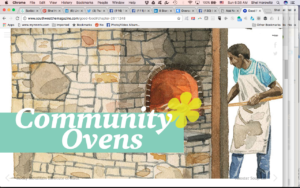Good to See Southwest Spirit Featuring a Bunch of Social Entrepreneurs
If you read this blog regularly or have read any of my recent books (especially Guerrilla Marketing to Heal the World), you know I’m all about business as a tool to crate social change and profit at the same time.
This is social entrepreneurship, and it has a long and honorable history. 19th century chocolatiers the Cadbury brothers in the UK and Milton Hershey in the US founded their companies to model humane labor practices, for instance.
Still, I encounter lots of skepticism that business can create positive outcomes across the triple bottom line of People, Profit, and Planet. It’s the same kind of skepticism I used to hear a decade ago when I was making the case that business ethics could be a profitable business success strategy. Over and over again, I would hear, “Business Ethics—that’s an oxymoron!”
No, it’s not. And interestingly enough, I don’t hear that any more. The world is finally convinced that it is possible to be an ethical, profitable business. It’s convinced that you can run a profitable green business. I like to think my years of speaking and writing on this, and the ethics pledge campaign I ran from 2004-2014, had something to do with these shifts in thinking.
Now we have to take it further, beyond just being “sustainable” to creating a regenerative world. One way to do that is to develop and market profitable products and services that turn hunger and poverty into sufficiency, war into peace, and catastrophic climate change into planetary balance.
So on a recent flight, when I pulled the July Southwest Spirit out of the seat pocket and saw a big feature on combining social entrepreneurship with food, I was thrilled. You couldn’t really guess the social entrepreneurship piece from the title, “Good Food: To serve their communities, today’s top culinary minds are reaching far beyond the kitchen.”
Can’t say I’m surprised. I’ve admired Southwest’s commitments to ethics, service, leadership that continually honors its employees, eco-friendly features AND profitability for many years. And I was over the moon when the company purchased 1000 copies of my first book on business ethics as a success strategy, back in 2003.
While Southwest’s magazine reaches a far larger readership than my humble blog, I do think it’s important to spotlight a company that cares enough about other companies doing good to devote 13 pages to it, even semi-disguising it as a food feature.
Here are the businesses they spotlight, and what they’re doing. The article, of course, has a lot more details. Note: I’ve been a vegetarian for ethical reasons since 1973, but I recognize that is not everyone’s choice. I am including the meat businesses featured in the article.
- Cala, a high-end San Francisco Mexican restaurant that seeks out ex-felons to hire
- Portland Fruit Tree Project, matching urban homeowners who have surplus fruit with volunteers who come to pick the fruit, keep half, and give the other half to food pantries, food banks, and health clinics
- The director of Rocky Mountain Institute of Meat, who set up a training program serving soldiers stationed far away—to make sure they could learn safe, sanitary procedures as well as discover ways to use the entire animal, with nothing wasted
-

Southwest’s illustration for the Community Ovens profile (screenshot) - A community oven project founded by the White Bear Lake, MN United Methodist Church, building community while providing a place to bake bread
- Rooster Soup Co, a tony Philadelphia establishment that adds fresh turmeric to make soup from chicken parts that would have been thrown out; all profits fund Broad Street Ministry, a social service organization
Kent, Washington’s Ubunto, hiring and training refugees and new immigrants from many cultures, all learning each other’s food traditions

